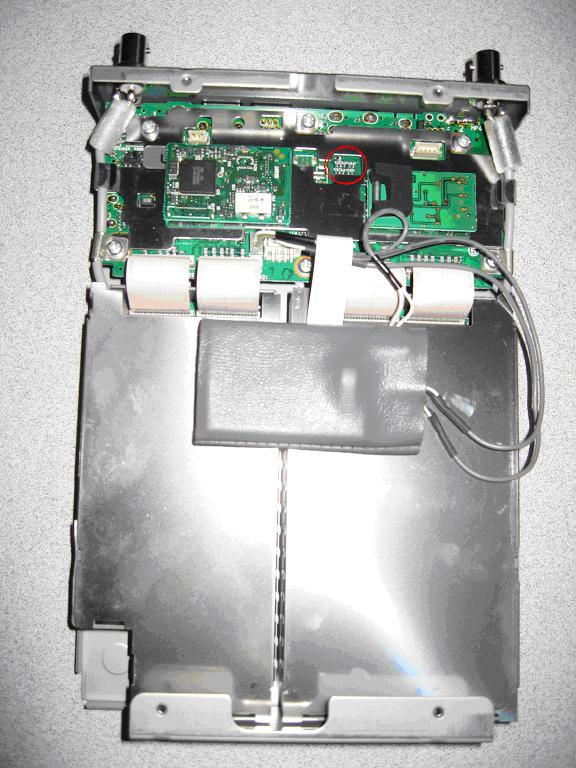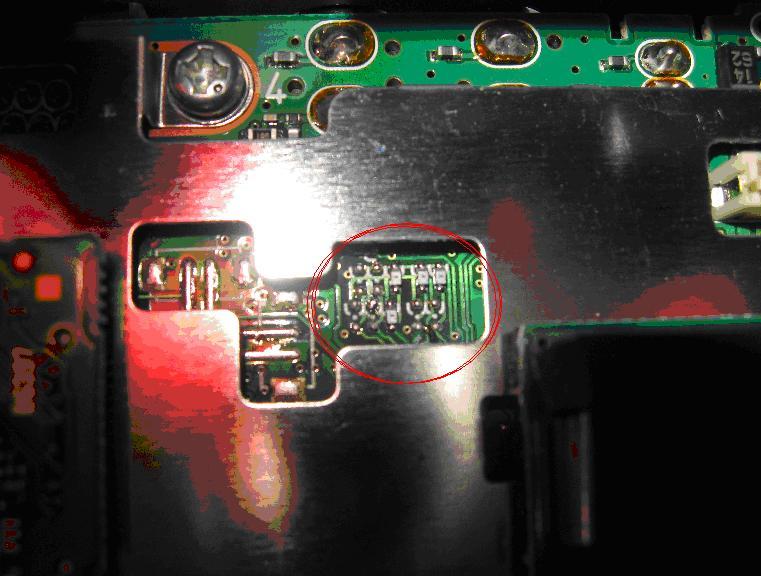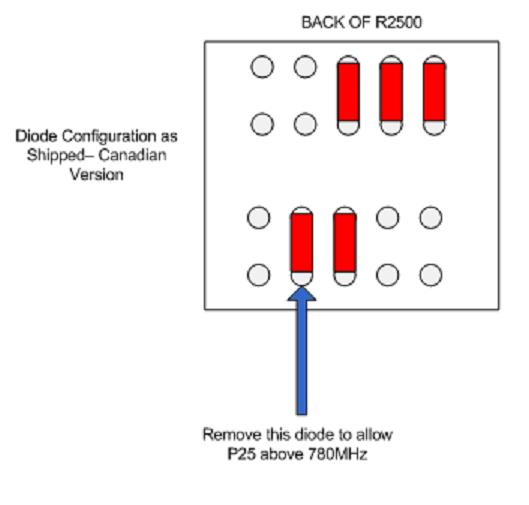APCO-25 Reception Above 780 MHz
From The RadioReference Wiki
Contents
Overview
The Icom IC-R2500 and PCR2500 receivers offer excellent quality APCO-25 digital communications reception with the addition of the UT-122 plug in board. However, for an unknown reason Icom chose not to support reception above 780 MHz. However, thanks to Radio Reference member nravid a relatively simple modification to restore reception above 780 MHz has been discovered. This modification will work with both the US (cellular blocked) and "Canadian" (unblocked) version of these receivers as well. It will also work with the model being sold from Taiwan by the eBay seller "palacemuseum".
Note: It appears that Icom may have addressed this issue with software/firmware release 2.1.
Disclaimer
Radio Reference and the persons involved in this modification will not be held liable for any damage done to your receiver if you perform this modification. Please proceed at your own risk with patience and caution. Thank you. This modification will likely void any warranty Icom provides. One of the methods that removes this diode may cause the modification to be "unreversible".
Required Tools
- Small (#1) phillips screwdriver.
- If using soldering iron, one with low heat and VERY small head.
- If not using soldering iron, tiny jeweler's screwdriver, dental pick, or similar tool.
- Magnifying glass.
- Clean, well lit area.
- Beer or the drink of your choice prior to performing the mod (optional but recommended).
Procedure
- 1. Remove the top cover of the 2500. There are two small black phillips head screws on either side of the receiver, and four on its top. Place in a container so they don't "disappear". I've learned this one the hard way. Ouch.
- 2. Carefully remove the top of the receiver. It will be connnected to the interior by two molex cables, one for audio and one for power. I did not unplug them, but you may find it necessary.
- 3. With the front of the receiver towards you, your view will be similar to this one.
Note the red circle in the photo. This is the area in which you will perform the modification, which is the removal of a single diode. Here is a closer shot of the area in question.
Again, the area you will be working on is circled. Again, ENSURE that the front of the receiver is towards you. (Please note that in this photo the diode has already been removed)
- 4. Refer to the following diagram, which shows which diode must be removed to ensure APCO-25 digital reception above 780 MHz.
If you are using a soldering iron to remove the diode, you know what to do from here. If you are using the jeweler's screwdriver as I did, or a dental pick, very very carefully begin to "pick" at the diode. Patience and very careful "picking" will eventually (it took me about 15 minutes) remove the diode from the board without it flying into the guts of the radio. The jeweler's screwdriver I used was VERY small, a flathead type likely no wider than 1/32 of an inch. I went in to the right of the diode to be removed and just very gently started "picking" at it by trying to get the head under the diode and very gently moving it to the left. I could feel it starting to come loose so I just very carefully continued, and it eventually popped off and sat right there for removal. I then used a magnified screwdriver to remove the diode from the board.
- 5. Reassemble the radio.
- 6. Ensure that connections are made to the computer, and/or the remote head if using an R2500.
- 7. Run and test. If successful you will be able to access the P25 button (or mode if using the R2500 remote head) above 780 MHz.
- 8. That's it. Congratulations, you now have P25 reception above 780 MHz! Enjoy!
Other Information Sources
Acknowledgements
Thanks to the following individuals for their assistance with the discovery of this modification, the performance of this modification, and for providing the pictures used in this page:
- nravid - Discovered method of modification and provided pictures in the first thread listed above.
- John, W1PC - Performed modification and posted results, provided the pictures for this page.
- Inssomniak - Performed modification and posted results, provided pictures that will be added to this page asap.
- Also, thanks to all others that have participated in the several long but informative threads regarding this and other 2500 issues. This page will be a work in progress with other photos and information added.
Scott/Scan Cape Cod
Return to IC PCR2500/IC-R2500 main page.


